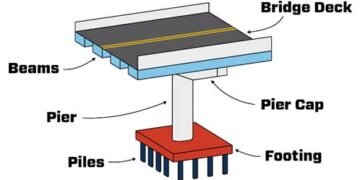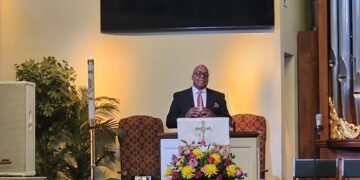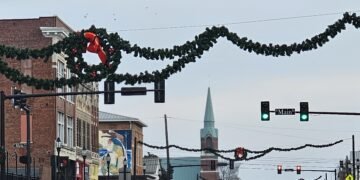The Henderson County Fiscal Court soon will act on the Henderson City-County Planning Commission’s recommendation to impose a two-year moratorium on permits and applications for wind energy systems.
This next step, in what will most likely be a very long process, probably won’t occur until sometime in October, though, because the fiscal court will need the minutes and findings of facts from the planning commission’s Sept. 2 meeting before it can do its due diligence.
And Brian Bishop, the planning commission’s executive director, said the planning commission will not approve the minutes and findings of fact until its next scheduled meeting on Oct. 7. After that, the information will be sent over to the fiscal court, he said
Once magistrates can review that information, the fiscal court could take action on the planning commission’s recommendation—likely at an October meeting. Schneider said the fiscal court will delve into the issue as soon as the information comes from the planning commission.
Last Tuesday night, the planning commission voted to recommend to the fiscal court a two-year moratorium for wind energy applications and permits. That meeting came about after the fiscal court in July approved a resolution which included a one-year moratorium on wind energy applications and permits. Additionally, the resolution asked the planning commission to hold a series of public hearings, the first of which was held Tuesday and designated to focus on the moratorium, and after make a recommendation for the fiscal court.
Now that the recommendation has been made, Henderson County Judge-Executive Brad Schneider said the fiscal court has three options. First, it can vote on the planning commission’s recommendation. Second, the fiscal court can decide to hold its own hearings regarding the moratorium. Or third, the fiscal court can send the issue back to the planning commission.
As of Wednesday, Schneider said he hadn’t spoken to any court members individually, and the direction the court decides to go would be best determined after discussing in a meeting.
That discussion, though, would need to be very specific to the contents of the minutes and the findings of fact from the planning commission meeting, Schneider said. If new information were to be brought up and discussed, it could require another public hearing on that information, he said.
Bishop said that measure is in place in fairness to residents so that they would be able to comment on all information before the fiscal court decides on the moratorium.
Community concern about a possible wind farm in the county peaked in the summer, after the Federal Aviation Administration released information in May that it was taking public comments about Cordelio Power’s plan to erect 93 wind turbines in eastern Henderson County, each reaching about 700 feet tall.
Cordelio has said the 93 turbine locations submitted to the FAA represent the largest possible footprint of the plan, and not the number they are shooting for, which is between 50 and 70.)
Tuesday’s planning commission meeting marked the first step of the process in creating regulations by local government to be included in the county’s zoning ordinances regarding wind energy systems.
About two dozen people spoke at the meeting, all but two opposed to wind energy and many called for a complete prohibition of the renewable energy in the county.
In the end, the planning commission approved a recommendation for a two-year moratorium, which would give local officials more time to wrap their heads around the technology, a renewable energy that is not currently present anywhere in the state.
Attached to the recommendation is an amendment that also places a two-year moratorium on windmills less than 50 feet tall that individuals could use at their own homes for personal energy production.
The resolution, as mentioned earlier, asks the planning commission to hold public hearings regarding wind energy systems. The next public hearing, according to Schneider and other observers, will probably be the most important. It will be conducted by the planning commission and will be used to gather facts and comments from residents for the writing of wind energy regulations. It will also include subject matter experts, both for and against, said Schneider. He said he hoped that experts have a record of peer-reviewed published research and do not work in the private sector.
Bishop said a date for the second public hearing has not yet been determined.
























